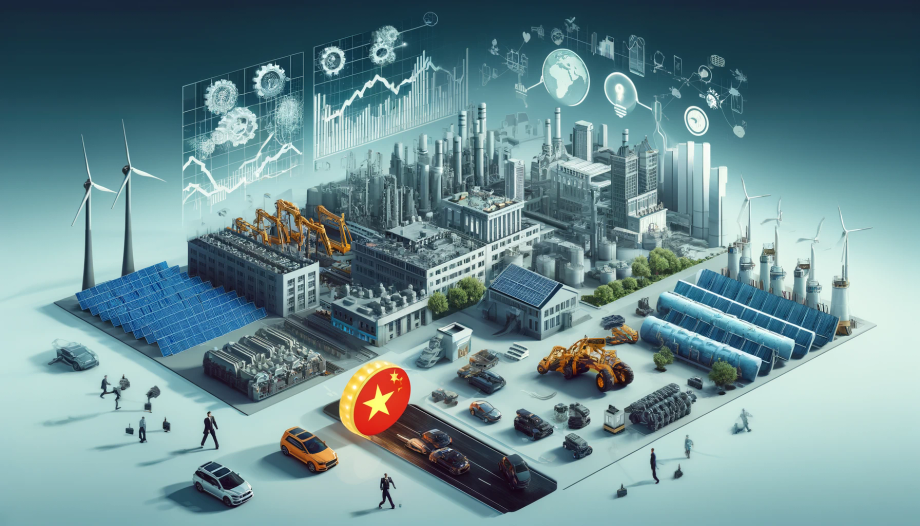This is an AI translated post.
China's Excess Capacity Problem and the Need for Economic Structural Reform
- Writing language: Korean
- •
-
Base country: Japan
- •
- Economy
Select Language
Summarized by durumis AI
- China is facing international concerns about excess capacity in strategic industries such as electric vehicles, solar panels, and lithium-ion batteries.
- This is a result of excessive government subsidies and dumping exports, which has led to the lowest operating rates for Chinese factories in 16 years.
- Experts warn that if China does not take real measures to address excess capacity, low growth will continue and trade disputes will intensify, emphasizing measures such as state-owned enterprise reform, the elimination of inefficient companies, and the suppression of bad loans from state-owned banks.
China has recently been drawing international concern over its overcapacity issues in strategic industries such as electric vehicles, solar panels, and lithium-ion batteries. This is because the Chinese government has been providing massive subsidies, enabling the dumping of exports into overseas markets at low prices.

China's excess capacity problem and the need for economic structural reform
In fact, according to a 2021 survey by the International Energy Agency (IEA), Chinese solar companies held over 80% of the market share despite only accounting for 36% of global demand. Moreover, Chinese battery manufacturers produced 747 GWh of batteries last year, but only 387 GWh were sold in the Chinese domestic market.
As this overcapacity problem worsens, the operating rate of Chinese factories has reached its lowest point in 16 years. This is also influenced by the prolonged real estate crisis and the economic downturn caused by sluggish consumption.
However, the root cause lies in the remnants of the past planned economy system centered on state-owned enterprises. Protectionist policies of local governments, non-implementation of central government's reform directives, and indiscriminate production expansion by companies have led to excessive investment in facilities.
Experts warn that if the Chinese government does not introduce concrete measures to address overcapacity during the National People's Congress, low growth will continue and larger trade conflicts will arise.
To address this, China needs to embark on state-owned enterprise reform and tolerate the withdrawal of inefficient companies. It also needs to curb bad loans to companies by state-owned banks, recover profits from state-owned enterprises, suppress local government subsidies, and strengthen environmental regulations.
The case of Japan, which underwent corporate restructuring after the bubble burst in the 1990s, holds significant implications. If China fails to implement structural reforms, it will face an economic downturn along with intensified protectionist policies against Chinese products in countries around the world.



